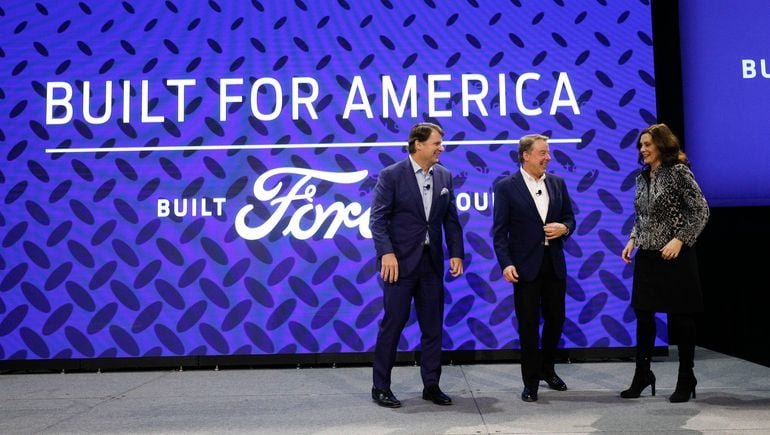Dive Brief:
- Ford will invest $3.5 billion to build its first lithium iron phosphate EV battery plant in Marshall, Michigan, as part of a $50 billion effort to grow its EV business by 2026.
- The introduction of LFP batteries will bring Ford a second battery option within its EV lineup, adding to its existing nickel cobalt manganese (NCM) option.
- The plant, owned by a Ford subsidiary, is slated to begin production in 2026 using knowledge and services provided by China-based battery manufacturer Contemporary Amperex Technology Co., Limited (CATL).
Dive Insight:
Ford lauded the addition of LFP battery capabilities as a way to make EVs more affordable and accessible to customers. Lithium-ion batteries powered by the NCM cocktail of components are known to have a more powerful range than LFP, but are more expensive.
“This lower-cost battery, at scale, will help Ford contain or even further reduce EV prices for customers,” according to the release. “These LFP batteries will power a variety of affordable, next-generation Ford EV passenger vehicles and trucks under development, most of which will be assembled in the U.S.”
The automaker plans to introduce LFP batteries in its Mustang Mach-E this year and F-150 Lightning in 2024, before the start of production at the Marshall plant.
Once at full capacity, the plant aims to produce enough batteries to power 400,000 vehicles a year, aided by CATL’s industry capabilities. The company is one of the world’s largest battery manufacturers, with 13 plants across China, Germany and Hungary, according to its website.
The Marshall facility is expected to hire 2,500 workers, a move applauded by United Automobile Workers Union President Ray Curry.
“Ford got it right by building this plant right here in Michigan,” UAW President Ray Curry said in a statement. “We supported the public investment into this facility as we know it will create good paying union jobs that will benefit the community and maintain strong wage and benefit standards in the auto industry.”
Ford’s investment comes only months after the groundbreaking of its $5.6 billion EV “mega-campus” in Tennessee. The automaker and its tech partners have spent $17.6 billion on its EV business since 2019.








